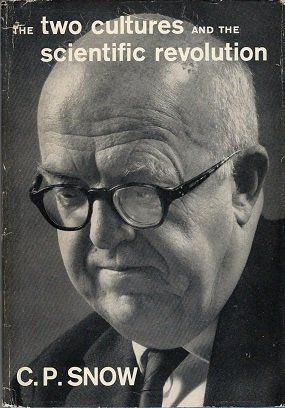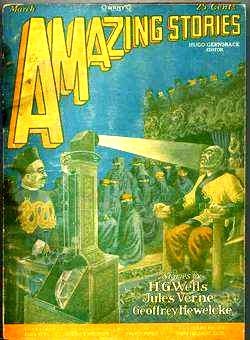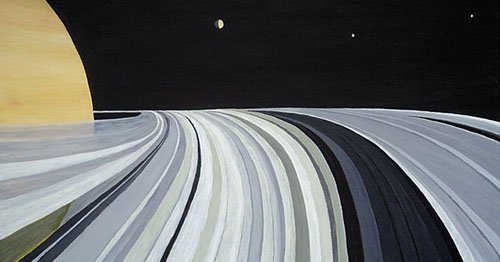Advice for Science Writers
Around the year 2000, I was deeply involved in the "science communication" industry, mainly through writing but also initiating cultural events such as exhibitions. London is a fantastic city for the science writer, with a plethora of organisations such as the Royal Society (founded in 1660), the Royal Institution (1799), the British Science Association (1831), the Science Museum (1857), plus a host of foundations and specialist societies. With such a wealth of activity, the most obvious first question for a newbie science writer is: what is it all for?

In 1959, C. P. Snow delivered an influential lecture entitled The Two Cultures; the controversial thesis was that western culture was split along two axes - the sciences and the humanities. Not only did the two camps receive rather different styles of education, but ended up by talking in completely different languages! Even worse, according to Snow, general ignorance about science (and mathematics, I must add) was worn as a badge of honour by the literati and cultural aesthetes. The secrecy under which all scientific developments had sweated during the war, meant the public was largely ignorant as to the true causes of the outcome. Snow was in the unique position of having one foot in each camp, being both a scientist and writer, as well as a civil servant. His novel, The New Men, remains a chilling reminder that science and technology develop within a power structure.

But how did our culture become so polarised? H. G. Wells started his career as a popular science writer and, like Snow, was a scientifically-trained writer. In an article in Nature entitled Popularising Science (1894), Wells lambasts his contemporaries for shoddy writing, talking down to their audience and for not having a clue as to how to craft an article that is both informative and entertaining to the general reader. For Wells, one of the best templates for science writers is the detective novel. "These stories show that the public delights in the ingenious unravelling of evidence. [...] First the problem, then the gradual piecing together of the solution. They cannot get enough of such matter."

Aldous Huxley picks up on this theme in a 1963 essay, Literature and Science; a response to C. P. Snow's lecture. Among the litany of references and quotes, I found that small nugget of insight that has been a leitmotif ever since: the task of the scientist is to create new language, the task of the writer is to make that new language meaningful within society. By "new language" I mean the ever-expanding scientific vocabulary, such as black holes, DNA, relativity etc, as well as subtle mathematical concepts such as fractals and infinities. The scientist as writer therefore has the public duty to follow the edict of "Everything should be made as simple as possible, but not simpler." (possibly said by Albert Einstein, quoted by the composer Roger Sessions, and expressing Ockham's razor - it's complicated!)
Thus the art of the popular science writer is to bring meaning and context to scientific discoveries. School textbooks generally do a poor job of this, being obsessed with following a granulated curriculum they leave out the whys and wherefores of scientific discoveries; this seems to have created a population that views science as something done by others, discussed in an esoteric language and with no value to "real life". Textbooks tend to concentrate on questions and answers, leaving out the whole human endeavour - the search for the solution - and this is where popular science fills the gap.

So how does all this relate to articles on Steemit? Well, firstly, this is not a scientific journal! This may seem obvious, but posting the abstract of a scientific paper and a link to the original (often behind a paywall) does not constitute a valuable post. Similarly with posts that are just a video link. Both are quick and easy but of limited value, with commensurate rewards. If you feel that a research paper or some science news is worthy of an article, then spend a little time adding value for the Steemian reading it.
What is the context? Why is it important? How does it overturn established ideas? Was the experiment particularly ingenious? Why were the scientists working on this particular problem? How are the results relevant to the general public? And last, but not least, why should anybody read beyond the headline?
These are all fairly standard journalistic questions, but added to these is the writer's particular skill in turning scientific ideas into valid and valuable metaphors - in making scientific language meaningful for the general reader. There is, actually, a problem with understanding science solely via metaphors, but that might be the topic of another post.
We do have scientists and mathematicians on Steemit, and some of them have posted excellent articles, but if they are going to continue writing on their favourite topics then they also need an audience. If popular science is to thrive then it isn't just about the science, it's also about being popular!
If all the above sounds highly theoretical, take a look at what is being upvoted by @steemstem, @physics-trail, @math-trail and often by @steemiteducation and @curie. If there are any science curators I have missed out, then please leave a message and I will add you too!
The author, @rycharde, is the creator of the Minnows Accelerator Project as well as curator of @physics-trail and @math-trail and some other curation services. Please consider voting for me as witness. Thank you.
Axes and Axis, this post is fantastic!
I'll just jeep following you. Im not a scientist perse, but I do try to implement what other scientists have discovered. I suppose Im a life long learner/researcher.
good luck in Steemit.. I agree with :
"Everything should be made as simple as possible, but not simpler." (possibly said by Albert Einstein, quoted by the composer Roger Sessions, and expressing Ockham's razor - it's complicated!)
It doesn't have to be complicated. We all complicate life, me included. Thanks for your post there are some good points in here. I look forward to reading more of your work. :) Well when I looked I only saw this post.
On another note, I put forth my opinion and question to others about resteeming. Maybe you could give me your input. It was my last post. That is if you have time.
Nice to meet you. :)
Hi @rebeccabe, yes, have been gathering dust as far as posting is concerned, but all the other projects have been taking up so much time! I may rewrite this at some point as there is a lot of condensed information to unpick - and I didn't want it turning into a 20 page essay!
got ya.. yes I know life calls and well there is the choice .. time is of essence :) nice to meet you
I always visit your blog because you inspires me. Do what you do. Thank you very much for sharing inspiring content.
great topic, it's is vitally important science be communicated in an engaging and imaginative manner. upvoted / resteemed
Thanks very much, glad you enjoyed it!
This is breath taking...beautiful work dear
There's so much to like about this post! Many excellent points, and well-written. I had totally forgotten about Snow's two cultures. It's a gap that does exist and it's a gap that needs closing.
Thanks. I see this even in my physics students; they learn the syllabus but without a real understanding. Indeed, taking mathematics out of physics leaves students without the language necessary to make their own deductions.
This also leads to a huge gap in public discourse about science and technology policy, assuming there are policies beyond corporate demands. Corporate fake science is a far bigger menace than pseudoscience, which serves as a useful diversion.
Reading H.G. Wells, while writing this, his concern was that science was being taken over by government grants and that the individual was finding it difficult to pursue their own interests. Well, we seem to have come out the other end where individuals in control of corporations now control governments who then rubber stamp any authoritarian technology.
Congratulations @rycharde! You have completed some achievement on Steemit and have been rewarded with new badge(s) :
Click on any badge to view your own Board of Honor on SteemitBoard.
For more information about SteemitBoard, click here
If you no longer want to receive notifications, reply to this comment with the word
STOP